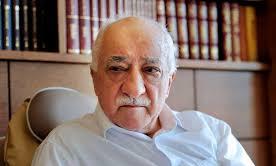
Self-exiled Turkish spiritual leader Fethullah Gulen dies in Pennsylvania
text_fieldsSaylorburg: Fethullah Gulen, a reclusive US-based Islamic cleric who inspired a global social movement has died. Gulen was a close associate of Turkish leader and current president Recep Tayyip Erdogan but fell out with him later and faced accusations that he masterminded a failed 2016 coup in his native Turkiye.
Abdullah Bozkurt, the former editor of the Gulen-linked Today's Zaman newspaper, who is now in exile in Sweden, said he spoke to Gulen's nephew, Kemal Gulen, who confirmed the death. Fethullah Gulen was 83 and had long been in ill health.
The state-run Anadolu Agency quoted Turkish Foreign Ministry Hakan Fidan as saying the death has been confirmed by Turkish intelligence sources.
Gulen spent the last decades of his life in self-exile, living in a gated compound in Pennsylvania's Pocono Mountains from where he continued to wield influence among his millions of followers in Turkiye and throughout the world. He espoused a philosophy that blended Sufism — a mystical form of Islam — with staunch advocacy of democracy, education, science and interfaith dialogue.
Gulen began as an ally of Turkish leader Recep Tayyip Erdogan, but became a foe. He called Erdogan an authoritarian bent on accumulating power and crushing dissent.
Erdogan cast Gulen as a terrorist, accusing him of orchestrating the attempted military coup on the night of July 15, 2016, when factions within the military used tanks, warplanes and helicopters to try to overthrow Erdogan's government.
Heeding a call from the president, thousands took to the streets to oppose the takeover attempt. The coup-plotters fired at crowds and bombed parliament and other government buildings. A total of 251 people were killed and around 2,200 others were wounded. Around 35 alleged coup plotters were also killed.
Gulen stoutly denied any role in the coup, and his supporters dismissed the charges as ridiculous and politically motivated. Turkiye put Gulen on its most-wanted list and demanded his extradition, but the United States showed little inclination to send him back, saying it needed more evidence.
Gulen was never charged with a crime in the US, and he consistently denounced terrorism as well as the coup plotters.
In Turkiye, Gulen's movement — sometimes known as Hizmet, Turkish for “service” — was subjected to a broad crackdown. The government arrested tens of thousands of people for their alleged link to the coup plot, sacked more than 130,000 suspected supporters from civil service jobs and more than 23,000 from the military, and shuttered hundreds of businesses, schools and media organisations tied to Gulen.
Fethullah Gulen was born in Erzurum, in eastern Turkiye. His official birth date was April 27, 1941, but that has long been in dispute.
Trained as an imam, or prayer leader, Gulen gained notice in Turkiye some 50 years ago. He preached tolerance and dialogue between faiths, and he believed religion and science could go hand in hand. His belief in merging Islam with Western values and Turkish nationalism struck a chord with Turks, earning him millions of followers.
Gulen's acolytes built a loosely affiliated global network of charitable foundations, professional associations, businesses and schools in more than 100 countries, including 150 taxpayer-funded charter schools throughout the United States. In Turkiye, supporters ran universities, hospitals, charities, a bank and a large media empire with newspapers and radio and TV stations.
Gulen had long refrained from openly supporting any political party, but his movement forged a de facto alliance with Erdogan against the country's old guard of staunch, military-backed secularists, and Gulen's media empire threw its weight behind Erdogan's Islamic-oriented government.
Gulenists helped the governing party win multiple elections. But the Erdogan-Gulen alliance began to crumble after the movement criticised government policy and exposed alleged corruption among Erdogan's inner circle. Erdogan, who denied the allegations, grew weary of the growing influence of Gulen's movement.
The Turkish leader accused Gulen's followers of infiltrating the country's police and judiciary and setting up a parallel state, and began agitating for Gulen's extradition to Turkey even before the failed 2016 coup.
Gulen had lived in the United States since 1999, when he came to seek medical treatment.
In 2000, with Gulen still in the US, Turkish authorities charged him with leading an Islamist plot to overthrow the country's secular form of government and establish a religious state.
The cleric was tried in absentia and acquitted, but he never returned to his homeland. He won a lengthy legal battle against the administration of then-President George W. Bush to obtain permanent residency in the US.
(With inputs from PTI)





